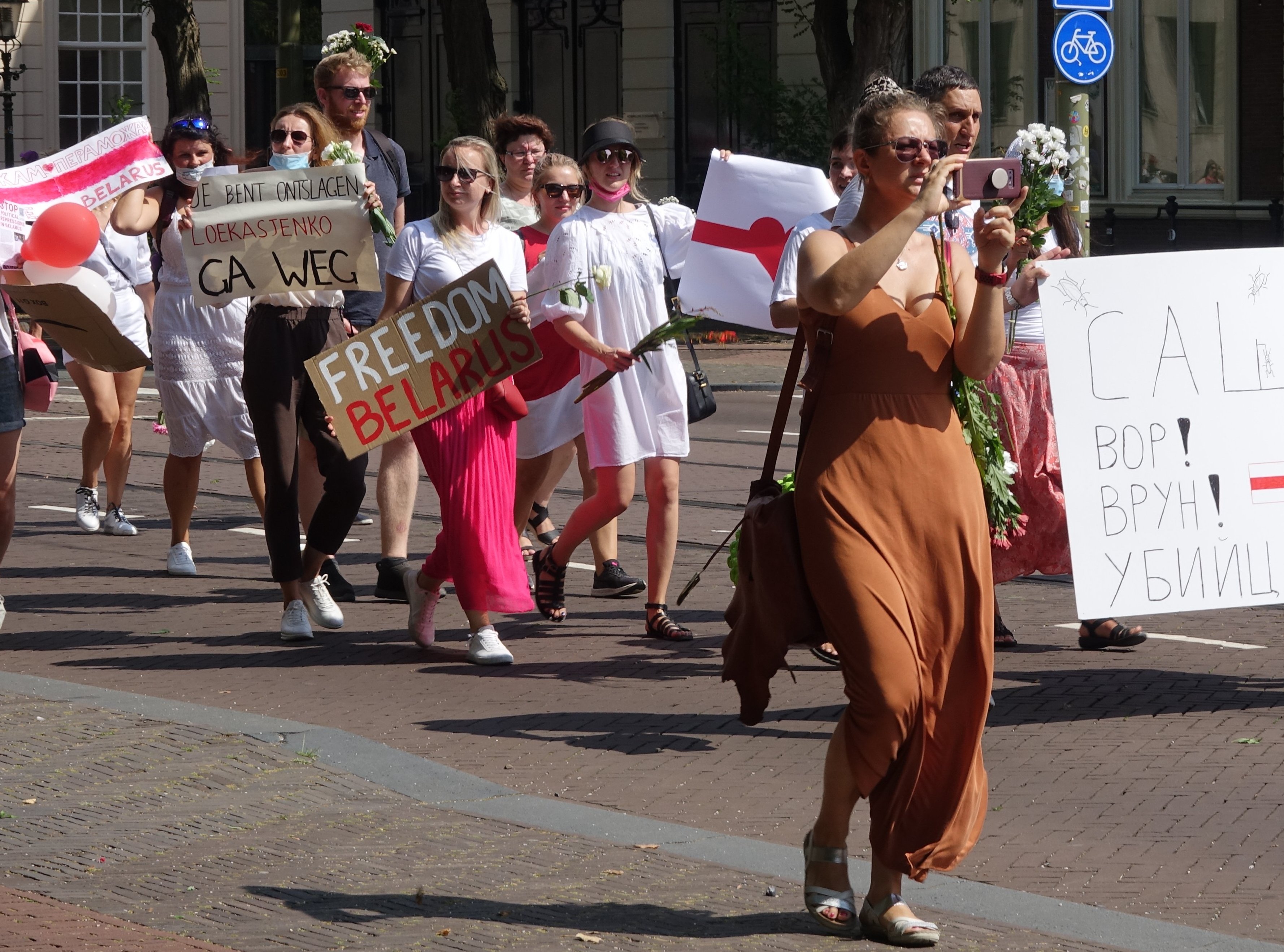On July 4, the Trump administration interjected the Department of Homeland Security into the protests ongoing in Portland—in spite of Associated Press reporting the number of nightly protestors to be less than 100—with no consideration for the questionable legality of these actions. With federal troops withdrawn, however, the actions of the administration—and the reasons behind them—can be called into question. According to two Portland State professors, the actions of the DHS may not only be questionable, but authoritarian.
“I think it is part of a strategy by the Trump administration to escalate things,” said Dr. Leopoldo Rodriguez, an associate professor of International and Development Studies at PSU. “Trump can probably see the polls, and see the public reaction of his terrible management of the country─in taking care of the [COVID-19] crisis and his terrible response to the Black Lives Matter movement and protests.”
Data from RealClearPolitics illustrates the gap between Trump’s falling approval and rising disapproval rating has increased by nearly 20%. A poll by The Washington Post shows a distinction across party lines: about 63% of Republicans prefer he restores security as opposed to deal with the racial divide, and 72% do not believe the police have used enough force in dealing with looters and vandals.
“These are tactics that are very, very scary and I think the purpose of that is to scare people—to be quiet, to not be counted, and fully deactivating,” Rodriguez said. “It’s true that this thing about grabbing people, putting them in cars, driving them around and questioning them; that is a kind of tactic that I have seen used in Latin America by authoritarian regimes already about to come to power and after they are in power.”
A comparison to Latin America is not unwarranted, considering Operation Condor—a United States-backed campaign of political repression and state terror in South America. This operation generated right-wing, anti-democratic and hyper-militarized regimes in Argentina, Bolivia, Brazil, Chile, Paraguay and Uruguay.
Furthermore, the domestic use of authoritarian actions is not unprecedented.
“The federal government has intervened numerous times in our nation’s history to quell incidents of domestic unrests,” explained Dr. Joshua Eastin, an associate professor of political science at PSU. “Normally what happens is the Insurrection Act of 1807 is used to justify these actions; sometimes, when federal officials are sent, it is at the request of state or local officials […] we also have examples where federal troops have been sent in and local officials have opposed them.”
Thomas Jefferson signed the Insurrection Act of 1807, which allowed the federal government to deploy military agents within the U.S. It was last used in the 1992 Los Angeles riots to quell the anger caused by police brutality.
Yet, despite having this avenue, the interjection in Portland did not use this rationale.
“What’s different about this instance in my mind is that the president is not using the insurrection act to send in national guard troops to enforce federal law,” Eastin said. “What the federal government is doing is sending in non-military personnel—so agents associated with the [DHS] working in the US marshal’s office, customs, and border protection, immigration, and customs enforcement, and the federal protections services—under the auspices of protecting federal property. But this is a very broad interpretation of ‘a threat to federal property.’”
“And it’s not entirely clear if it’s legal; one of the consequences of having a huge administrative apparatus like the [DHS] with multiple law enforcement agencies with overlapping administrative duties is that legal justifications can be stretched, or contracted, or contorted to fit particular circumstances and it feels like that’s what’s happening here,” Eastin said.
Determining legality will take time and depend on the decisions of ongoing lawsuits.
“I think it’s still quite early yet to call the Trump administration fascist, but I think that it would be appropriate to say there are overlaps with fascist regimes in history,” Eastin said. “So far, it seems that our liberal democratic institutions have been able to withstand much of the assault─in other words, it doesn’t seem that overall the public does not trust the judiciary anymore because the president continues to attack them.”
Whether authoritarian tactics devolve into fascism, however, depends on the public.
“I don’t want to conflate all authoritarian regimes with fascism; usually, when people mean authoritarian they mean non-democratic,” Eastin said. “It’s not out of the question that were President Trump reelected that we would see things continue to erode to a point that it might be much, much more difficult to retrieve them than it is now.






